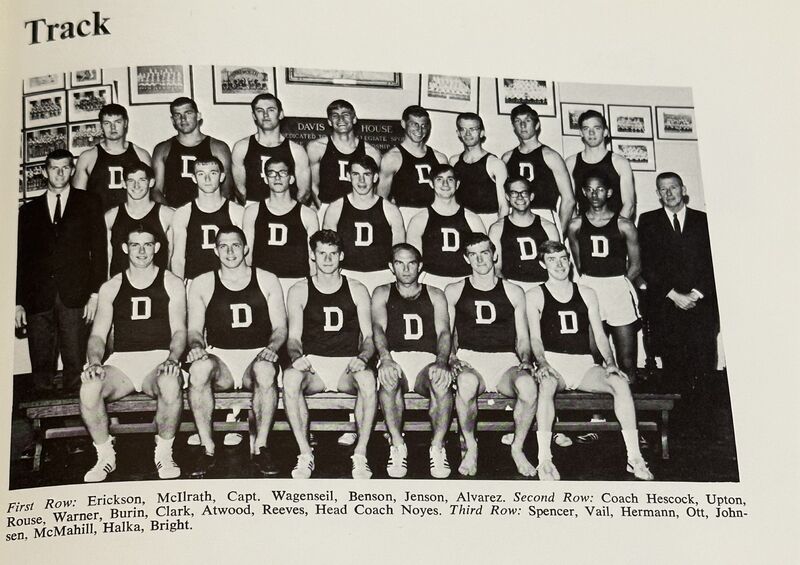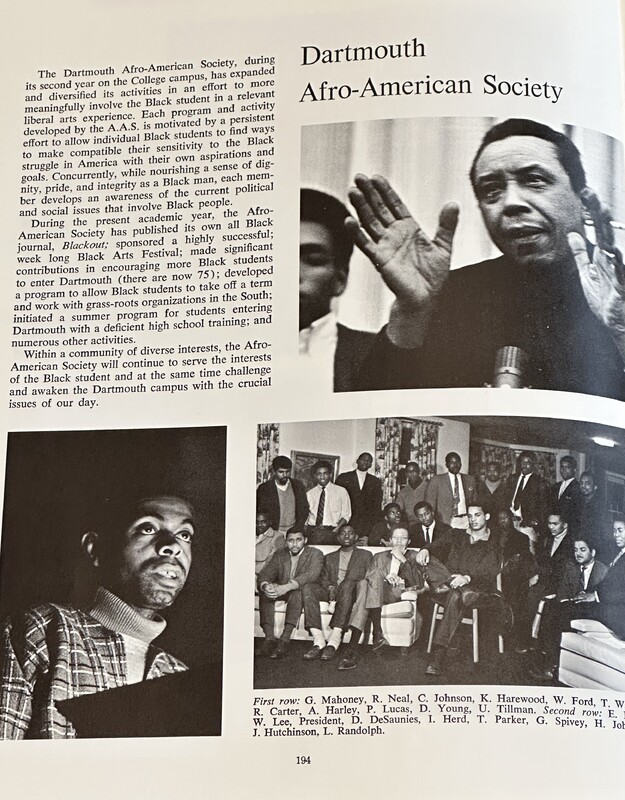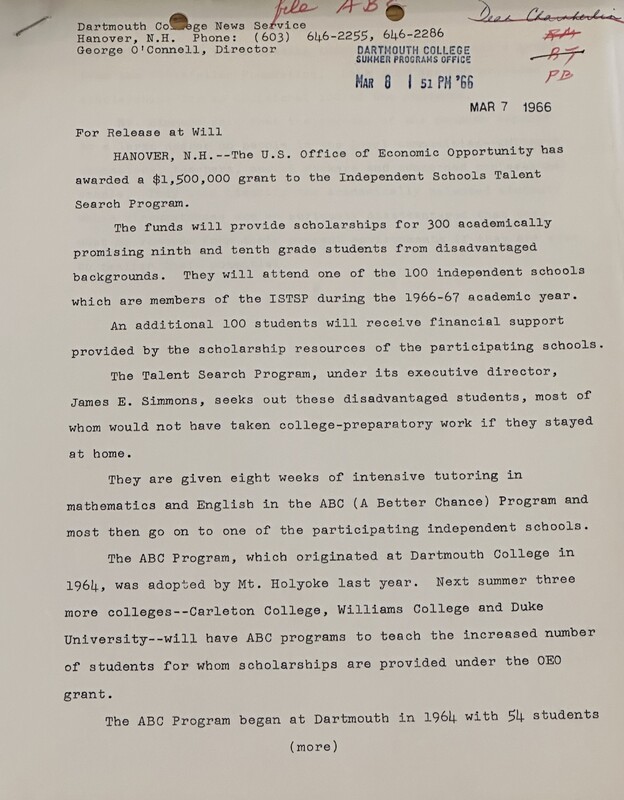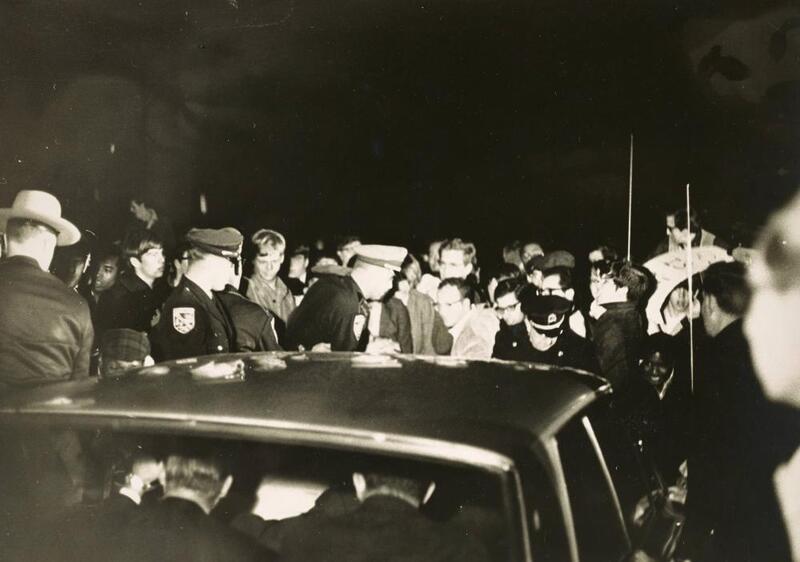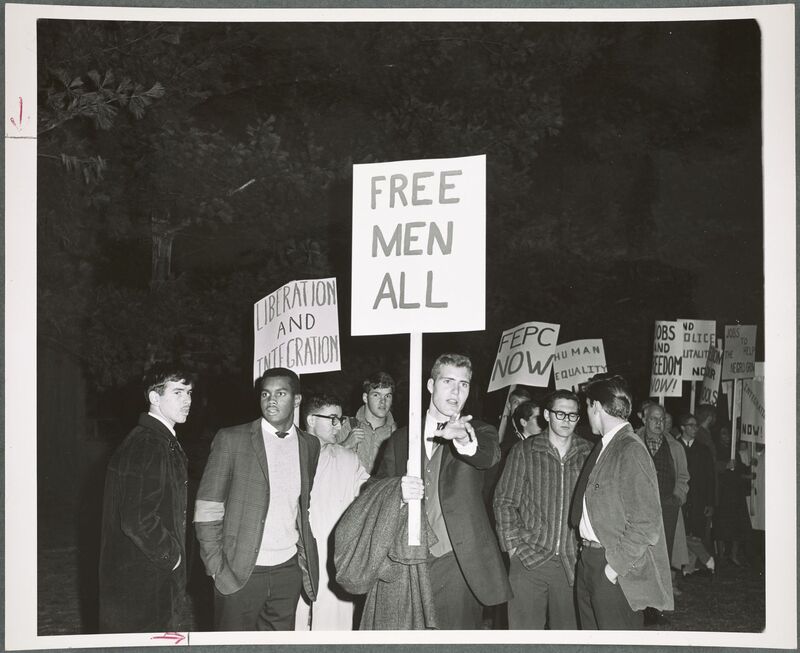Learning and Growing at Dartmouth
When Albert Moncure, Jr. arrived at Dartmouth College, he was a member of both the track and the cross country teams, although he left the teams after his sophomore year. It was through these two clubs that he made most of his friends his first year, and, unsurprisingly, his teammates were mostly white. In fact, he had only one other Black teammate. This would be the case for pretty much all of his college tenure; most of every group or class would be white.
In fact, when Moncure arrived at Dartmouth, he was one of fifteen Black men in his class. This, however, seemed to reflect the status quo for most of his life prior to coming to Dartmouth. During the interview, Moncure mentioned that he grew up in a predominantly middle-class Black neighborhood in White Plains, NY; however, his schools had always been predominantly white. For example, Moncure mentioned that in a class of about 900 people in high school, about 50 were Black.
Still, Moncure enjoyed Dartmouth. His roommate throughout all four years was white, as were most of his friends. The lack of diversity at Dartmouth did not really bother Moncure, but he did mention that seeing another Black student was like seeing and making a new friend.
---------------------------------------------------------------------------------------------------------------------------
Although Moncure had many friends, being one of fifteen Black men in his class could not have been easy. Luckily, in 1967, the Afro-American Society was founded and it included nearly every Black student. Moncure described this society as a welcoming space that was very beneficial to every Black person on campus. The Dartmouth Christian Union (DCU) seemed to have played an influential role in helping to establish the Afro-American Society (AAM), by encouraging Black students to join the DCU or to form their own society where they could all support each other. Moncure explained that the AAM was a great way for him to socialize and to fraternize with other Black people.
After all, Moncure did not have many other spaces to socialize. He did not rush a fraternity due to a lack of interest, although he did say that part of the reason was that there were no Black fraternities. He consistantly referred to the fraternities as "white fraternities," while also claiming that they were inclusive and that the fraternities would accept anyone. Even then, Moncure explained that a student had a choice between being an athlete, socializing, or doing their school work and being a good student.
-------------------------------------------------------------------------------------------------------------------------------------------
Moncure studied English in college and really enjoyed the subject. He described English classes as being very difficult, for one would have to read a 300-400 page novel every week! Moncure described Dartmouth as a "jock school" and explained that many students never did their readings and only showed up to class to take quizzes. During the interview, Moncure told one entertaining anecdote about students who would only show up to class to take the reading quizzes and then come up with an excuse to leave class without listening to the lecture. This prompted the professor to exclaim, "I'm done trying to tame the Big Green!"
While stories like these were funny, I also asked Moncure if he had any negative experiences during his time at Dartmouth. I had heard first-hand accounts about negative experiences Black students had with professors, and I wanted to see if Moncure had any experiences like these. Luckily, he did not have many, but there was one negative experience that stood out to him. He recalled that a professor of sociology once explained that there weren't enough Black students to form Black fraternities and said, "it's a good thing."
It seems that the common, positive experiences that Moncure had with his professors made an impact on him. He participated in the A Better Chance (ABC) Program, in which Dartmouth students would tutor underprivileged high school students in Andover, Massachusetts. Moncure spoke about this as one of his most pleasureable experiences at Dartmouth and claimed that it made him a better student and teacher. Moncure participated in the program for two straight terms.
---------------------------------------------------------------------------------------------------------------------------
Moncure's years at Dartmouth coincided with a very tumultuous time in the United States; after all, integration was fairly new in the nation. Due to this, there were a good many protests that took place on college campuses around the nation. A famous one that occured at Dartmouth during Moncure's time was the George Wallace protest of 1967. Moncure was not one of the people who rushed the stage that Wallace was on, but he did take part in the crowd of students that surrounded Wallace's car and refused to get out of the way. The state police ended up having to take charge and create a path for Wallace's car to leave.
Another important protest that occured in 1967 was a sit-in at the office of President John Sloan Dickey, in which students protested Dartmouth's investments in the Eastman Kodak photography company. The idea was that Dartmouth would give their proxy to a grassroots organization so that the organization could vote to ensure Kodak made socially responsible business decisions. Moncure did not take any part in this sit-in, but he mentioned that several members of the Afro-American Society participated.

